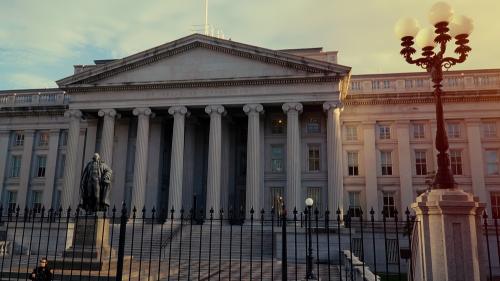The Obama administration has proposed a series of changes to U.S. financial regulation stemming from the financial crisis. This paper describes and evaluates those proposals with a particular eye towards their implications for the regulation of finance in emerging market economies. Before going into the specifics of the reform proposals, I start by reviewing the major explanations of the financial crisis, since they affect the choice of remedies, and then discuss the underlying principles of U.S. financial regulation for which there is broad agreement and therefore little pressure for change. In fact, the consensus on these points is so strong that there is very little discussion of these basics.
Views of the crisis and their effect on regulatory reform
People instinctively try to understand complex situations by hanging the facts on a simple story line. For example, America’s entry into World War I came to be seen after the fact as the result of financiers looking to protect their loans to Europe and our trade flows. This attitude played a major role in the isolationism that kept us out of World War II until we were actually attacked. Similarly, one of the earliest American theories of the Great Depression was that it sprang from the crash on Wall Street, which came to be associated with financial manipulation by bankers and rich speculators. This created much of the impetus for the separation of commercial and investment banking and the creation of the Securities and Exchange Commission and the associated laws to protect investors. In both cases, there were many complex causes and therefore the potential for alternative story lines to have taken hold which would have led to different legislative outcomes.
We have a great body of facts about the current financial crisis, but do not yet have a consensus narrative about the fundamental causes. In my view, there are three major story lines vying for acceptance:
Narrative 1: It was the fault of the government, which encouraged a massive housing bubble and mishandled the ensuing crisis.
Narrative 2: It was Wall Street’s fault, stemming from greed, arrogance, stupidity, and misaligned incentives, especially in compensation structures.
Narrative 3: “Everyone” was at fault: Wall Street, the government, and our wider society. People in all types of institutions and as individuals became blasé about risk-taking and leverage, creating a bubble across a wide range of investments and countries.
I believe that narrative 3 comes closest to the truth and that it matters whether that story line becomes accepted by the public. The best regulatory reforms would fix the wide-spread problems in both the markets and in government regulation. In contrast, public acceptance of narrative 1 would lead to too little regulatory change, while narrative 2 would likely encourage a stifling of markets without fixing the problems inherent in our regulatory structure. My preferred narrative encourages a balanced and comprehensive set of changes.
The Brookings Institution is committed to quality, independence, and impact.
We are supported by a diverse array of funders. In line with our values and policies, each Brookings publication represents the sole views of its author(s).



